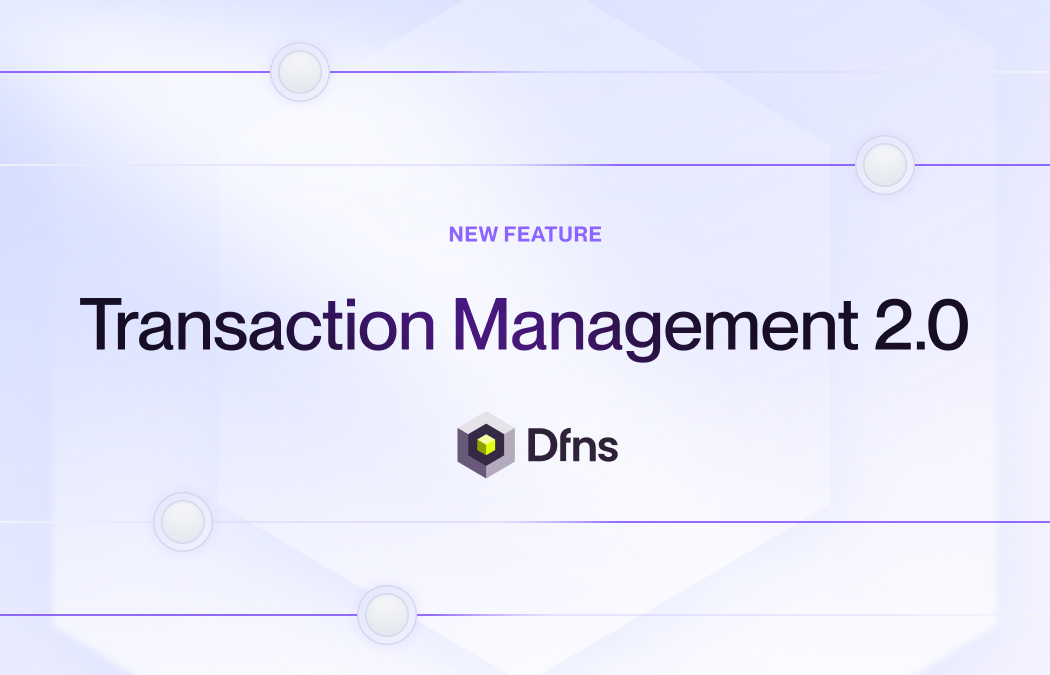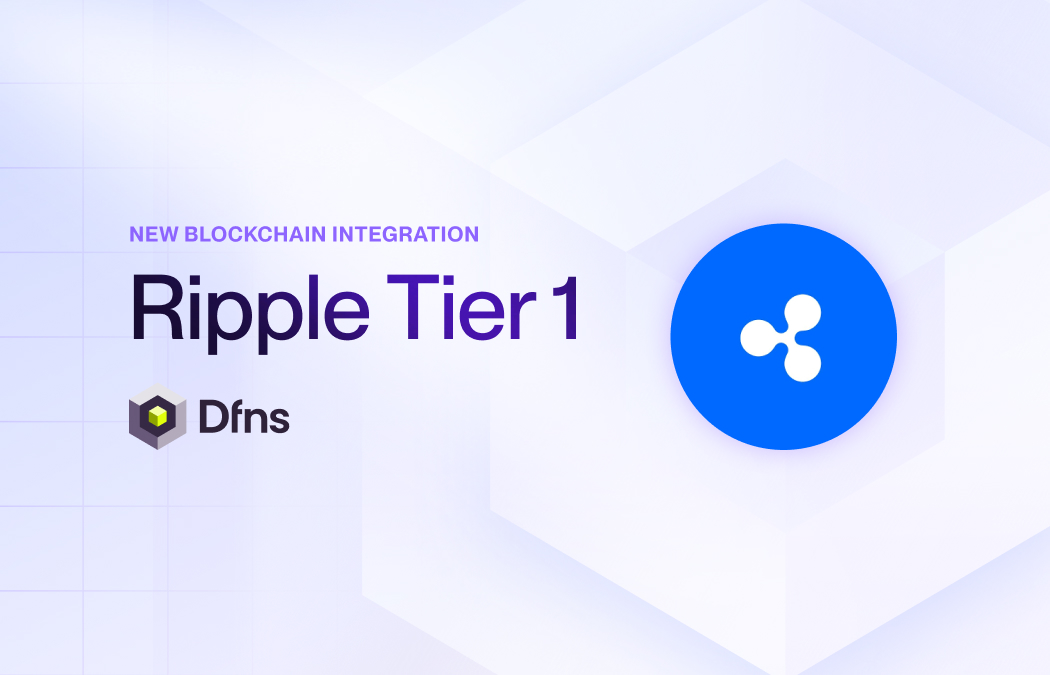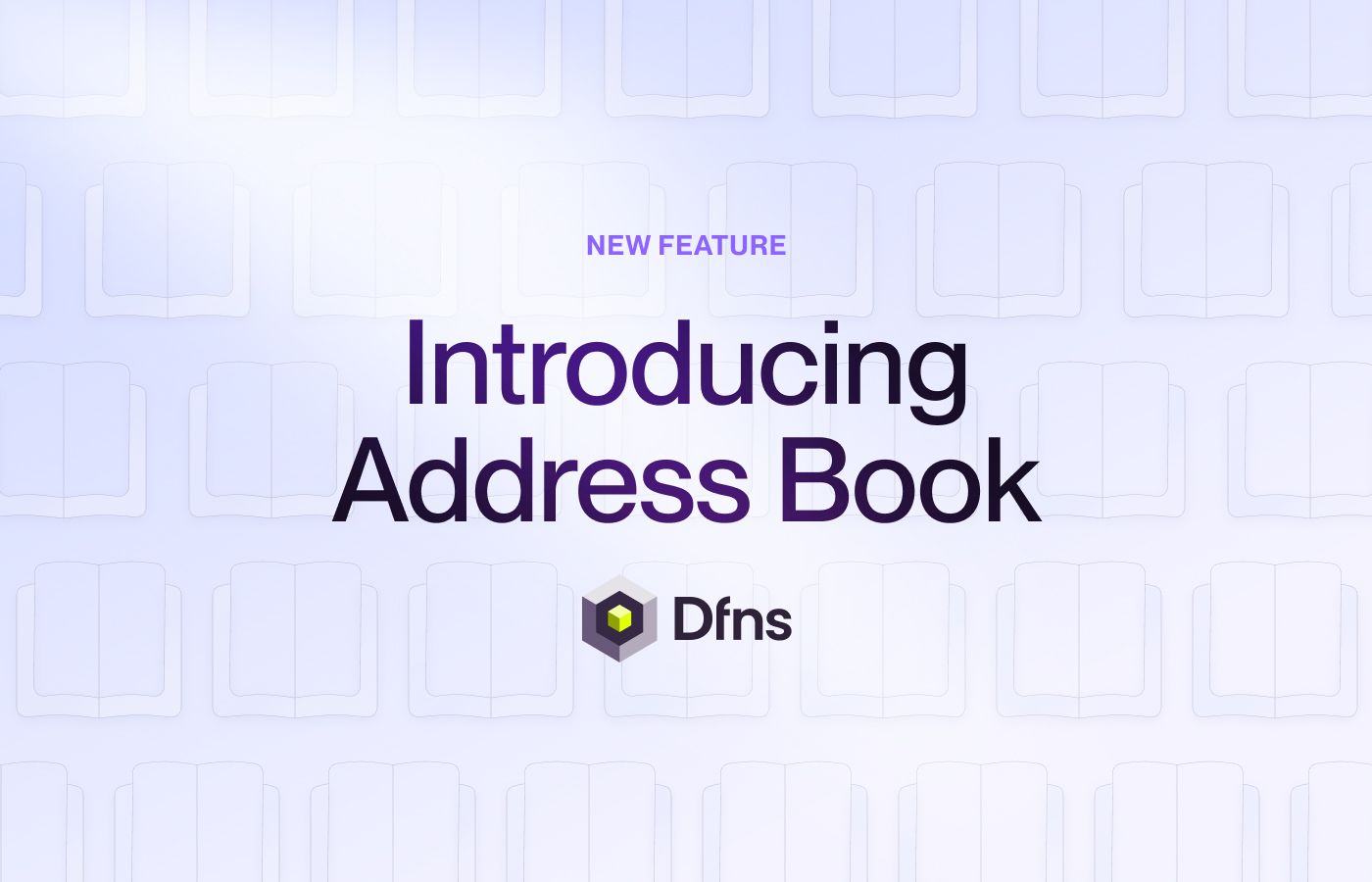
Introducing Address Book, human-readable blockchain addresses for your onchain operations.
Managing blockchain transactions shouldn’t mean wrestling with 42-character strings, duplicating spreadsheets, or relying on memory. That’s why we’re introducing Address Book, a new feature in the Dfns dashboard that brings order, clarity, and governance to blockchain address management.
Like a recipient list in a traditional banking app, our Address Book makes it simple to save, organize, and share wallet addresses across your organization. It’s a UI-first feature available in the Dfns dashboard today. Start creating aliases, organize your most-used recipients, and experience a smarter, safer way to manage blockchain addresses.
A brief description of our Address Book
At its core, Address Book allows users to create aliases, human-readable labels that map to one or more blockchain addresses. Aliases are unique within the organization and shared across all its members, ensuring everyone works from the same trusted list.
Each address entry includes:
- Alias (Label): A unique, human-readable name.
- Network: The blockchain on which the address exists, with validation rules for format correctness. We enable an alias to map to multiple networks.
- Blockchain Address(es): One or multiple addresses tied to the alias across different networks.
- Description: An optional description field.
- Creation Date: Full auditability of when an entry was added.
For operations teams managing digital assets at scale, Address Book is more than a convenience feature:
- It reduces operational risk by minimizing copy-paste errors.
- It saves time with faster recipient selection and autofill.
- It standardizes address management across teams and business units.
- It strengthens compliance with policy enforcement, permissions, and audit logs.
The end result: cleaner workflows, fewer errors, and higher confidence when managing blockchain transactions.
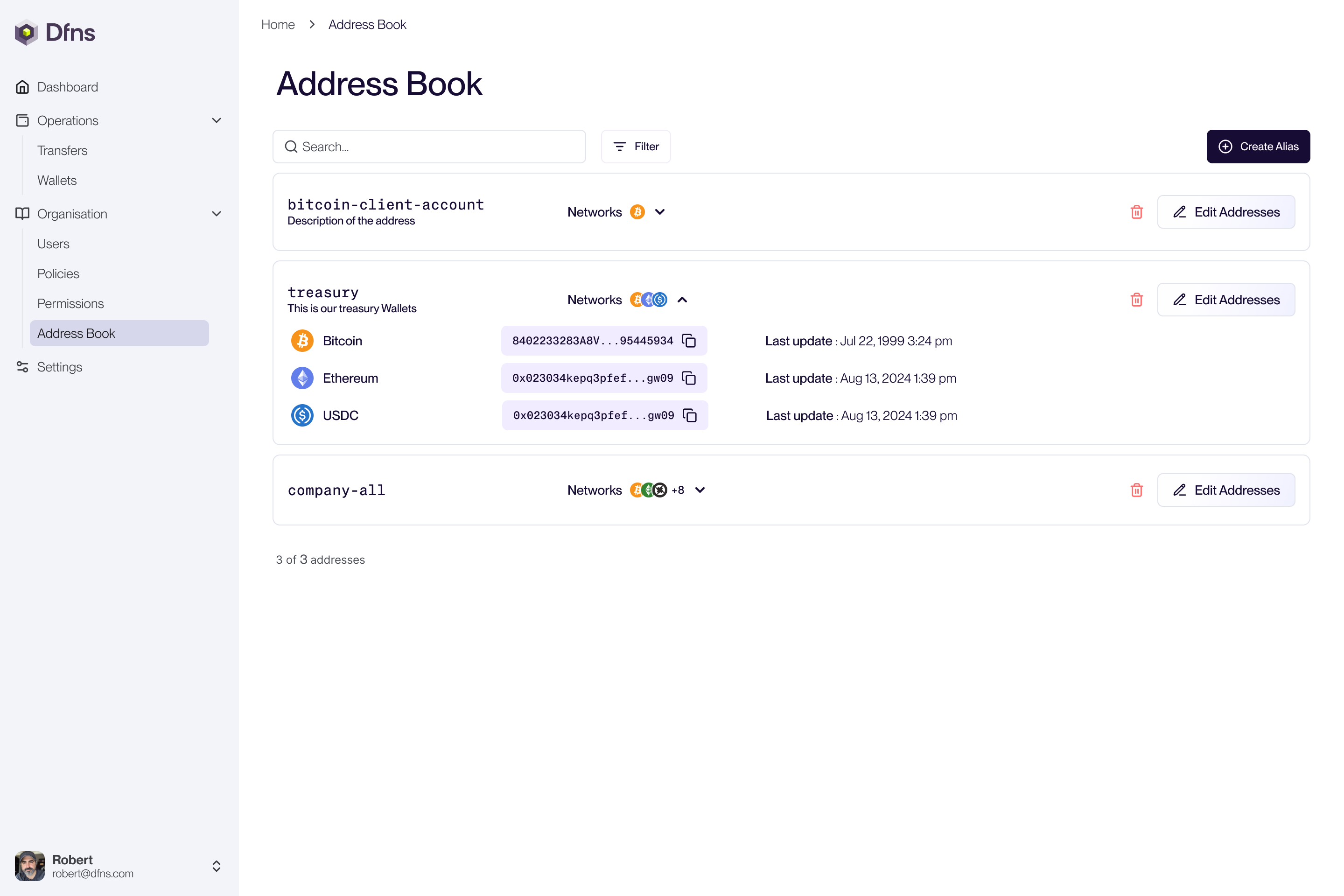
Commands and flows of the Address Book
- Create a new alias
- Add a name and link it to one or more blockchain addresses.
- Pick the right network (Ethereum, Solana, Bitcoin, etc.) with built-in checks to validate the address format.
- The system warns if the address already exists.
- Modification or deletion follow your organization’s policies (e.g. “If Alice edits a new recipient, require 2-of-3 approval”).
- Manage aliases
- Browse a searchable, filterable list of all aliases.
- Edit details (e.g., add addresses for new networks).
- Delete unused entries to keep the book tidy.
- All changes are logged in the organization’s audit trail.
- [COMING SOON] Use during transactions
- Select a saved alias instead of typing an address.
- Recipient details are auto-filled from the Address Book.
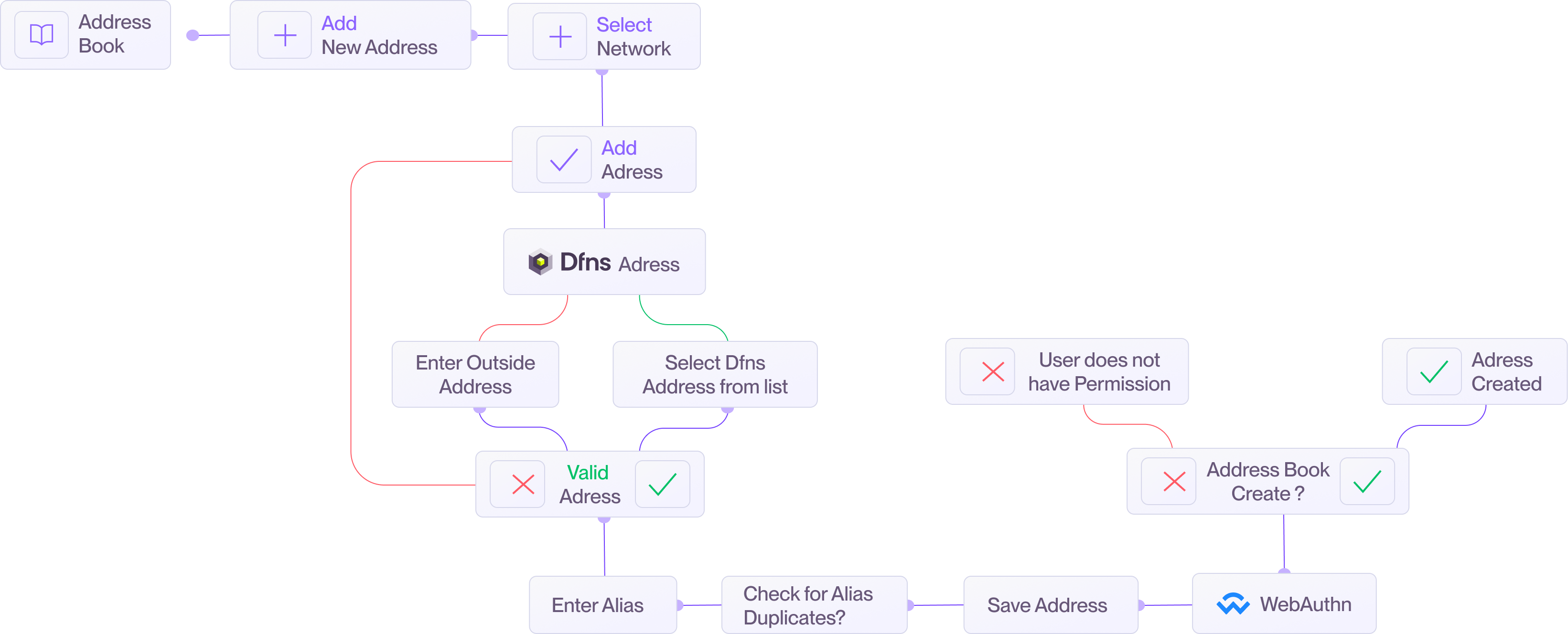
Pro tip: Start by adding your organization’s internal wallets under aliases like Treasury, Custody, or Liquidity. This creates a shared reference for everyone on your team and reduces the chance of sending assets to the wrong place.
Secure and compliant address management
Because recipient management is a sensitive operation, Address Book is tightly integrated with the Dfns transaction policy management (TPM) and wallet entitlement management (WEM) services:
- Permissions define which roles are allowed to edit or delete entries.
- Policies add transaction-like guardrails, requiring approval workflows for edits.
- Auditability ensures that every alias creation, update, or deletion is logged for compliance and security reviews.
This means no more untracked spreadsheets or ad hoc copy-paste lists, every address entry is controlled, governed, and reviewable.
The next iterations of the Address Book
Address Book is rolling out in phases:
Phase 1: Private intra-org directory (available today)
- Shared across the organization only.
- UI-first in dashboard.
Phase 2: Public and permissioned discovery (coming soon)
- Public aliases for Dfns-managed wallets: verifiable, searchable, and trusted across organizations.
- Permissioned sharing of aliases between organizations (e.g., counterparties or partners).
Phase 3: Onchain resolution (coming later)
- Alias entries, resolvable via domain-based naming systems such as ENS.
- External wallets can resolve and send assets to your aliases directly.
Try out Address Book today: app.dfns.io/get-started




